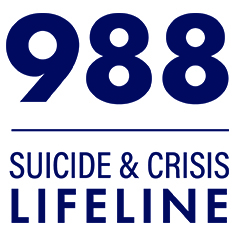The Center for Deployment Psychology (CDP) was created in order to prepare health care professionals to better meet the deployment-related emotional and psychological needs of military personnel and their families. The CDP trains health care professionals through live presentations, online learning resources, ongoing consultation and education, coordinating activities across a nationwide network of training sites at 11 military medical centers.
Resource Types: Webinar/Presentation
How can we prevent premature death and injury
Shared risks contribute to premature deaths among youth and young adults due to suicide, homicide, and accidental deaths (motor vehicle accidents, overdoses). This webinar discussed community integrated approaches to address common risks that contribute to diverse outcomes on the path to premature deaths, such as attempted suicide and substance use/alcohol misuse. It focused on suicide prevention as an example.
When helping hurts: Self-care strategies for refugee community leaders & service
This webinar focuses on individual and collective reactions to trauma, resilience, compassion fatigue, compassion satisfaction, strategies to promote a collaborative and positive work environment, and self-care. It was designed in response to suicides in the Bhutanese-Nepali refugee community and was geared toward refugee community leaders, caseworkers, community-based organization leaders, and faith-based leaders as well as refugees.
Understanding and overcoming the challenges faced by lesbian, gay, bisexual, transgender, questioning and intersex youth
Presenters discuss the importance of changing perceptions, practices, and culture to address the needs of underserved LGBTQI youth. Webinars in the series include “Understanding and overcoming the challenges faced by lesbian, gay, bisexual, transgender, questioning and intersex youth in schools and communities”, “The critical role of families in reducing risk and promoting well-being for lesbian, gay, bisexual, transgender, questioning and intersex youth” and Understanding the importance of implementing an effective justice system response for lesbian, gay, bisexual, transgender, questioning, and intersex youth in custody”
Coming Home: Supporting Military Service Members, Veterans, and Their Families
Describes the challenges facing military personnel, veterans, and their families, the mental health and substance abuse support available from the U.S. Department of Veterans Affairs and civilian health systems, and the need to expand family-centered services.
Suicide prevention in juvenile correctional facilities
This two-part webinar series guides juvenile justice administrators and staff in creating and implementing suicide prevention policies within juvenile detention facilities. It describes the demographic and facility characteristics of juvenile suicide and teaches the eight critical components of a sound suicide prevention policy: staff training: intake screening and ongoing assessment; communication; housing; levels of supervision; intervention; reporting and mortality review.
Strategic planning for campus suicide prevention
Part of the campus training program for new GLS campus grantees, this webinar guides grantees through the strategic planning process of describing the problem and setting goals and objectives.
Understanding and overcoming the challenges faced by LGBTQI youth in schools and communities
This webinar presents an overview of the challenges that Lesbian, Gay, Bisexual, Transgender, Questioning and Intersex (LGBTQI) youth face in their schools and communities. Presenters will discuss the importance of changing perceptions, practices, and culture to address the needs of these underserved youth. Slides are attached and a transcript of the webinar is available by following the link.
Suicide among refugees: Understanding the social and cultural context for prevention strategies

In this webinar, Dr. Heidi Ellis, Director of Children’s Hospital Center for Refugee Trauma and Resilience, discussed factors contributing to high rates of suicide among certain refugee groups and proposed prevention strategies.
Suicide in the U.S.: Finding pathways to prevention
This videocast of a discussion panel convened by the National Institute of Mental Health in observance of World Suicide Prevention Day, 2011, featuring suicide prevention experts and researchers can serve as a primer for someone who is new to suicide prevention.
